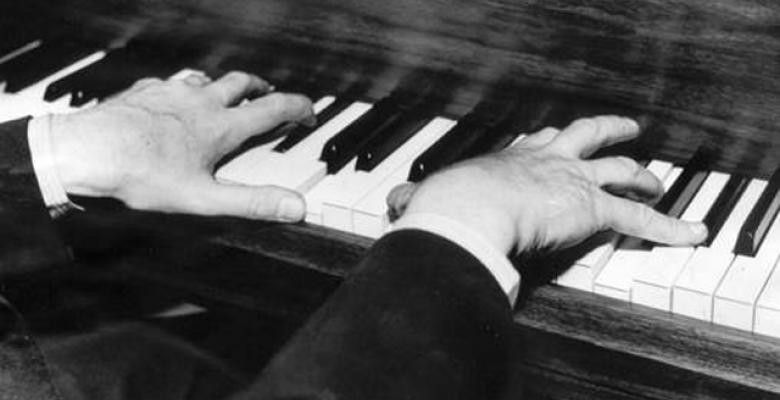Rare Book and Manuscript Library Acquires Serge Prokofiev Collection

Columbia University Libraries/Information Services’ Rare Book & Manuscript Library (RBML) is pleased to announce the acquisition of the collection of Russian composer Serge Prokofiev (1891-1953). The Serge Prokofiev Foundation has chosen the RBML as the repository for the archival material under its control from Prokofiev’s 18 years in the West.
The Foundation was established in 1983 by Lina Prokofiev, the composer’s widow, to enrich public awareness of Prokofiev’s life and work and to encourage research. After her death in 1989 at age 91, and the death of her sons Sviatoslav and Oleg, the work of the Foundation has been carried on by their descendants.
The collection includes Prokofiev’s private and business papers from 1919 through May 1936, after which he returned to the Soviet Union with his family. Correspondents include conductors such as Sir Henry Wood and Sergei Koussevitzky; soloists such as Joseph Szigeti and Pablo Casals; composers such as Igor Stravinsky and Maurice Ravel; and chess grandmaster José Capablanca.
“Prokofiev’s Paris years were among the most productive and inventive of his career, and they connect well with the collections in our Bakhmeteff Archive, one of the largest collections anywhere of emigre' Russian history and culture,” said Michael Ryan, director of the RBML. “Columbia also has important music holdings including works by Edward McDowell, Douglas Moore, Jack Beeson, Bela Bartok, and many others, which will be significantly enriched by this acquisition.”
Music manuscripts in the collection include sketches, drafts and full manuscripts for over 50 works principally composed during the years that Prokofiev spent in the United States, Germany and Paris. They include the orchestral "Scythian Suite," his operas "The Gambler," "Love for Three Oranges," and "The Fiery Angel," the "Concerto for Piano Nos. 2, 3, 4 and 5," the ballet "Le Pas d’Acier," and "Symphony Nos. 1, 3 and 4."
“Prokofiev’s American debut was in New York, and his opera The Love of Three Oranges had its third performance here,” said Simon Morison, president of the Prokofiev Foundation. “The city vexed him, but he loved it and doubtless grieved -- in his final, Soviet years -- being unable to return. His wife Lina grew up in Brooklyn and Manhattan, and her uncle Charles Verlé taught at Columbia. So it is poignantly appropriate that such a large part of Prokofiev’s archive has found a new home in the RBML.”
The collection contains the papers of Lina Prokofiev, including gathered materials for a planned biography of her husband, and those of Oleg Prokofiev, relating to his own work and to his father’s music. This material, as well as a substantial library of books, scores, audio and video recordings, concert programs, scrapbooks, and periodicals that support research on Prokofiev’s entire life and work, will arrive at the RBML by the end of 2013.
The collection will provide primary resource material for a major twentieth-century composer, and will provide access to manuscripts previously only available in photocopy form. It will also provide a principal resource outside of Russia for the study of Prokofiev, and his family, friends, correspondents, and concert life in the early 20th-century.